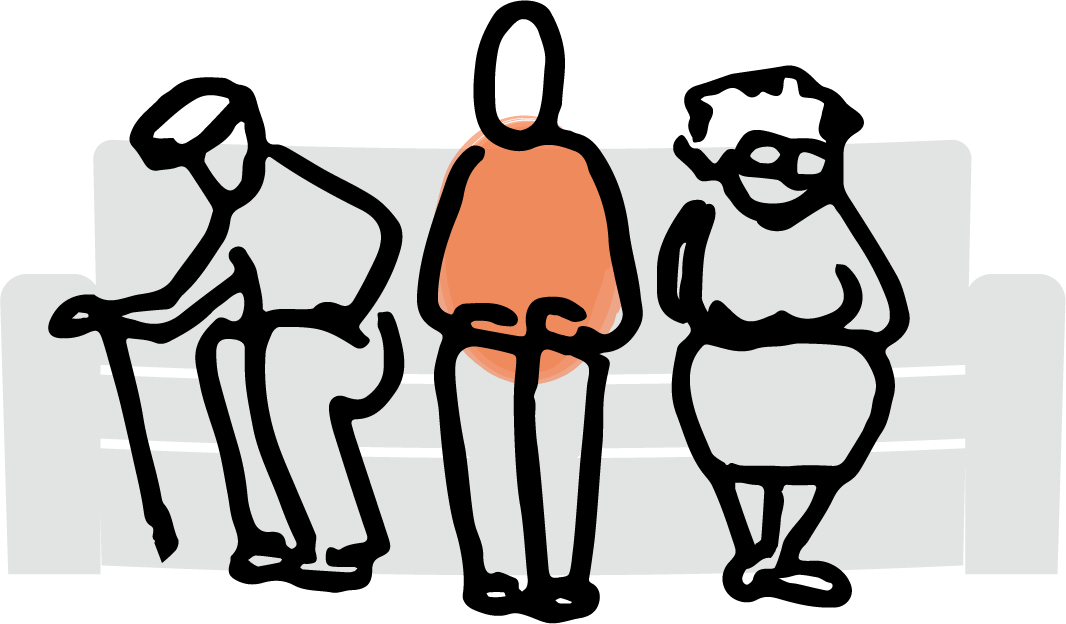7 Quick Tips About Caring
For you — and for sharing.
Today, we’re opening up the archives to revisit a few of our most popular tips.
Are you a new subscriber? This summer sampler is a bite-sized intro to some of the challenges you’re likely to encounter along the way.
If you’re a longtime reader, take another look. You may see something you missed or a topic you didn’t think you needed to think about the first time around.
And thank you for sharing My Aging Parents with your friends and family!
Thanks for caring,

Positive Possibilities
A big part of helping an aging parent is coping with stress and uncertainty. But that’s not the whole story. It’s just the part of the journey that most of us focus on. Caring as an obligation. A responsibility. A burden.
Positive caregiving sees this time as a rite of passage — an opportunity for personal growth and deeper connnection.
It’s not about denying negative feelings or forcing yourself to always look on the bright side of life. It’s about savoring the good and using positive emotions to move forward. (Even if you and your parent aren’t on the best terms to begin with.)
For More:
ER Visit Essentials
It doesn’t matter whether its noon or midnight. Any visit to the emergency room is controlled chaos. And when you have aging parents, you’re bound to take that trip.
So make sure you’re ready. Ideally, you’ll want to put together a hospital emergency kit with all the essential info your parent needs.
At the very least, bring your parent’s health insurance info, a list of all their medications and health conditions, and a contact list for all your parent’s doctors. And remember to bring any meds, snacks, and water you need to take care of yourself.
For More:
Step Up (and Down) for Safety
What about the stairs? If your parents plan to grow old at home, that’s a question to start asking now.
Age-related changes make stairs more challenging over time. And for older adults, a misstep can be catastrophic.
Here are some steps (sorry, couldn’t resist) to reduce risk well before your folks need to consider a stair lift: 8 Ways to Make the Stairs Safer at Home. (AARP)
Have Mercy on Me
You snapped at your mother. You fell asleep on your spouse halfway through “date” night. You inhaled that quart of coffee toffee crunch so fast your dog hid under the bed.
How do you plead? “Guilty, your Honor. On all counts.”
When you’re helping your parents and caring for your family and yourself, there are always gaps between what is and what will never be. Feeling guilty about what you did or didn’t do, or what you should’ve, could’ve, or would’ve done is inevitable.
And you can learn to manage it. Start here: The Dos and Don’ts of Managing Caregiver Guilt (Working Daughter)
For More:
- Multiple Roles: Handling the Guilt (Today’s Caregiver)
- How to Use Regret to Move Forward. These brief interviews with Daniel Pink, author of The Power of Regret, are actionable and liberating. Here’s the first.
Dollars and Sense
Has Mom started to bounce checks? Is this the same woman who balanced her checkbook to the penny?
Don’t write it off as a harmless oversight. Problems with managing money and financial decision-making can add up — and only cost more the longer they go unnoticed.
Worse: Research shows that financial decline can be an early warning sign of cognitive impairment and dementia, a condition which makes your parent even more vulnerable to financial risks, including scammers.
Look for these red flags: Five Early Warning Signs of Financial Decline. (PDF)
Who Ya Gonna Call?
At some point, everyone who is helping an aging parent has the same realization: you are in control of much less than you thought. And this is so much harder than you expected.
What can help: Expert advice from the Caregiver Help Desk — a confidential service staffed by real people who understand how you feel, what you’re dealing with, and can give you guidance about next steps. And yah, it’s free.
Whether you’ve got questions about a specific challenge or just need to talk, support is available by phone, email, and live chat, Monday through Friday, from 8a.m. to 7p.m. Eastern.
For More:
Are You Past Your Tipping Point?
Caregiver burnout is dangerous — for you and your parent. And it’s common. Especially if a parent’s bad fall or health crisis has just hijacked your life, or you don’t have help, or won’t allow others to help.
Burnout denial is also common. When you’re doing everything, everywhere, all-at-once, it’s easy to ignore warning signs that you’re in trouble.
Are you past your personal tipping point? Take this free online Caregiver Self-Assessment and find out.
New to My Aging Parents?
Join us for practical tips and strategies to help you meet the challenges of helping your aging parents. Hand picked and delivered by email biweekly.
No charge. No spam. Unsubscribe anytime.
